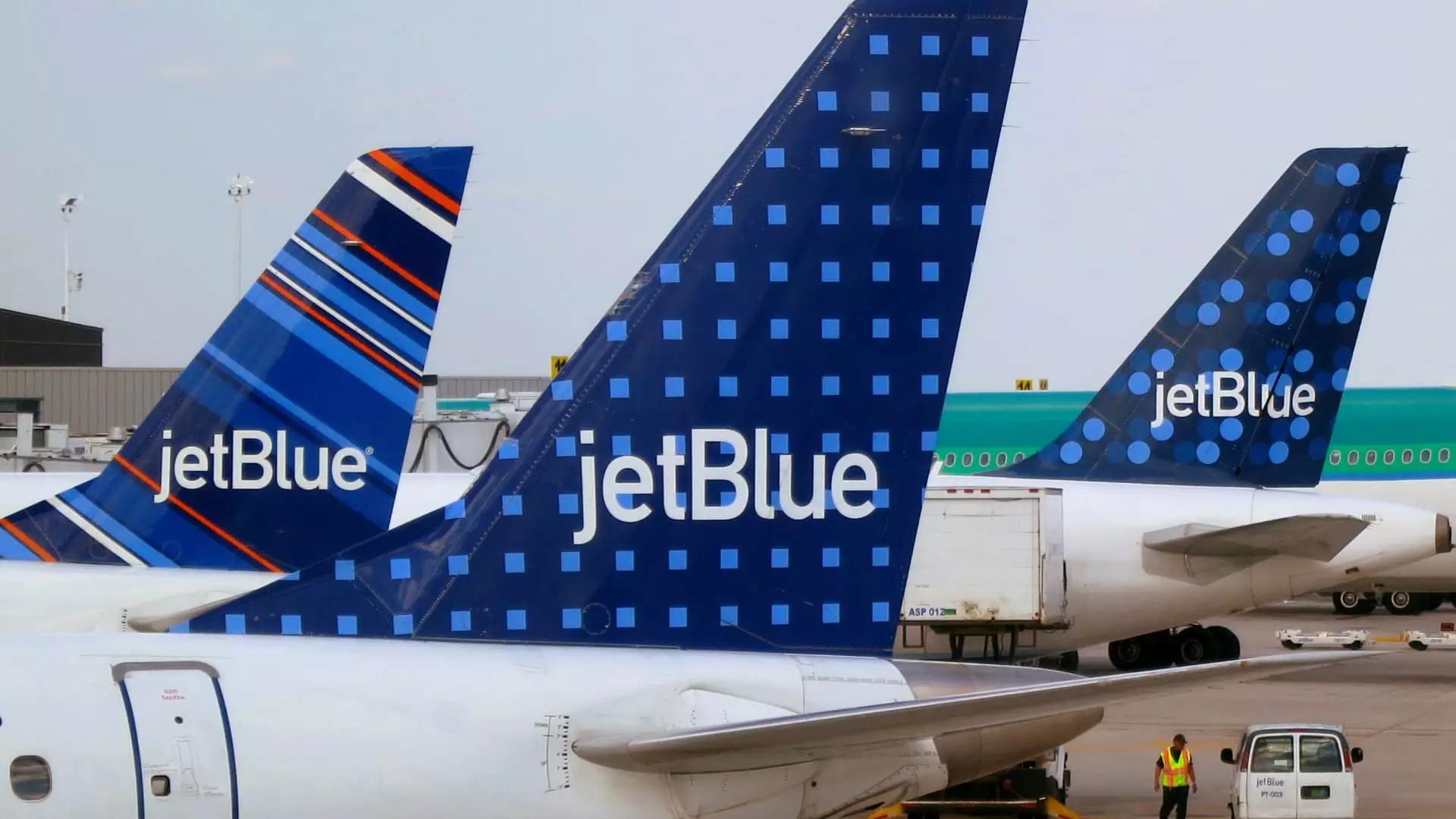The recent imposition of a $2 million fine on JetBlue Airways by the Department of Transportation (DOT) marks a significant moment in the aviation industry, reflecting both accountability and the increasing scrutiny on airlines regarding their operational practices. This penalty, which stems from what authorities have termed “chronically delayed flights,” is a clear signal that federal regulators are taking a more proactive stance on enforcing standards for timely air travel. As we delve into the specifics of the case and its implications for the broader airline industry, it becomes clear that JetBlue’s situation is symptomatic of ongoing challenges within the aviation ecosystem.
JetBlue faced scrutiny due to excessive delays on four specific routes between June 2022 and November 2023. According to the DOT, these routes—connecting New York’s John F. Kennedy International Airport with various destinations in North Carolina, Florida, and Connecticut—experienced at least 145 delays. The data suggests that JetBlue was responsible for a staggering 70% of disruptions on these routes. The DOT categorizes a flight as chronically delayed if it operates more than ten times a month and consistently arrives 30 minutes or more late on over half of those occasions. This framework sets a clear operational benchmark that JetBlue failed to meet.
While the fine represents a unique response to persistent delays, it also highlights the fact that these issues are not isolated to JetBlue alone. The DOT is reportedly investigating other carriers for similar patterns of unrealistic scheduling, suggesting a potential systemic problem across the aviation industry. This raises critical questions about how airlines manage scheduling and their accountability for maintaining punctuality in an industry where operational variables frequently change.
In response to the fine, JetBlue has pointed fingers at broader industry challenges, particularly those associated with the air traffic control (ATC) system. The airline emphasized the need for renewed investment in ATC infrastructure and staffing to alleviate delays, arguing that the federal government shares some responsibility for ensuring reliable air travel. This perspective resonates with sentiments echoed by executives from other major airlines like Delta and United, further illustrating a collective acknowledgment of the operational hurdles faced by carriers today.
JetBlue’s remarks serve not only as a defense against the fine but also as a call to action for regulators. The airline insists that the modernization of ATC technology and addressing staffing shortages are essential steps to mitigating delays, arguing that their plight—like that of many other airlines—is intertwined with these larger systemic issues. Such assertions urge a reevaluation of how the aviation sector can collaborate with government entities to improve overall service delivery.
Implications for Airline Accountability
This incident signals a notable shift towards enhanced accountability within the aviation industry. The DOT’s decisive action against JetBlue sets a precedent for other airlines, reinforcing the expectation that they must adhere to realistic scheduling practices. It reflects a growing recognition that passengers deserve timely travel, and airlines must be held responsible for their operational failures.
The potential implications extend beyond just fines; reputational damage and loss of customer trust are crucial considerations that airlines must ponder. In a market where loyalty can dwindle quickly, maintaining a reputation for reliability is paramount for sustaining a competitive edge. As JetBlue continues to grapple with its current situation, the airline must also confront the challenge of rebuilding its public image while addressing the underlying operational issues that led to the fine.
Future Directions for JetBlue and the Industry
Moving forward, the aviation industry may witness a shift in how operational efficiency is prioritized at the organizational level. As regulators signal their willingness to impose penalties for chronic delays, airlines may feel compelled to adopt more conservative scheduling practices or invest in operational enhancements to mitigate the risk of similar fines.
JetBlue’s acknowledgment of complicating factors outside its direct control highlights a broader industry dilemma. For many passengers, the reliability of air travel is contingent not solely on individual airline performance but also on the effectiveness of the infrastructure supporting them. This incident could galvanize further dialogue on how airlines and government agencies can work together to foster a more reliable air travel environment.
The $2 million fine levied on JetBlue Airways provides a timely opportunity to examine the intersection of airline accountability and systemic challenges in the aviation sector. With growing scrutiny and regulatory expectations, airlines must navigate these complexities while striving to enhance operational efficiency and customer satisfaction.

Leave a Reply